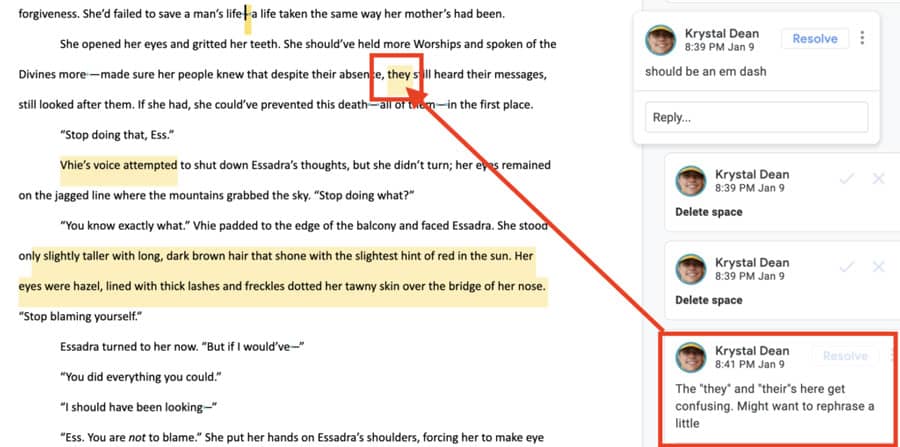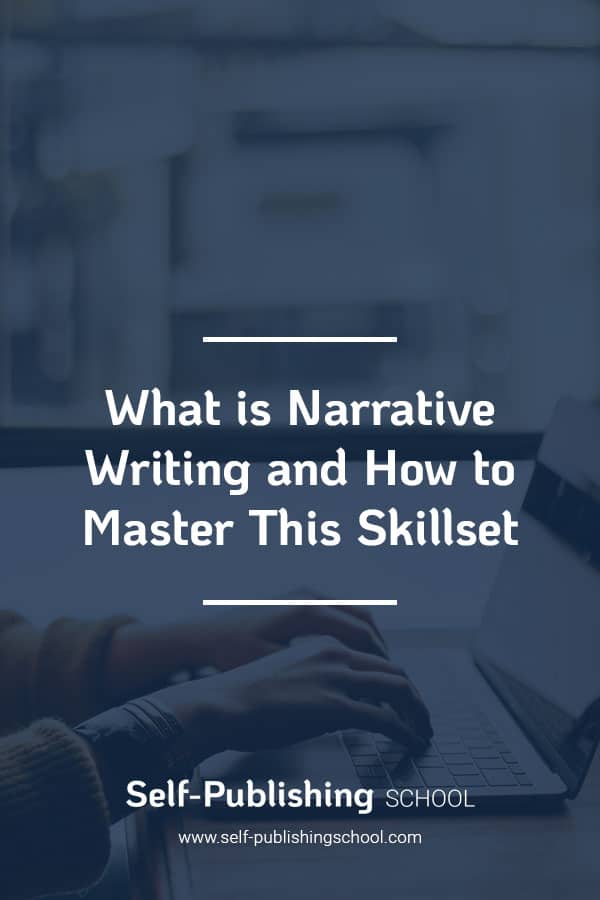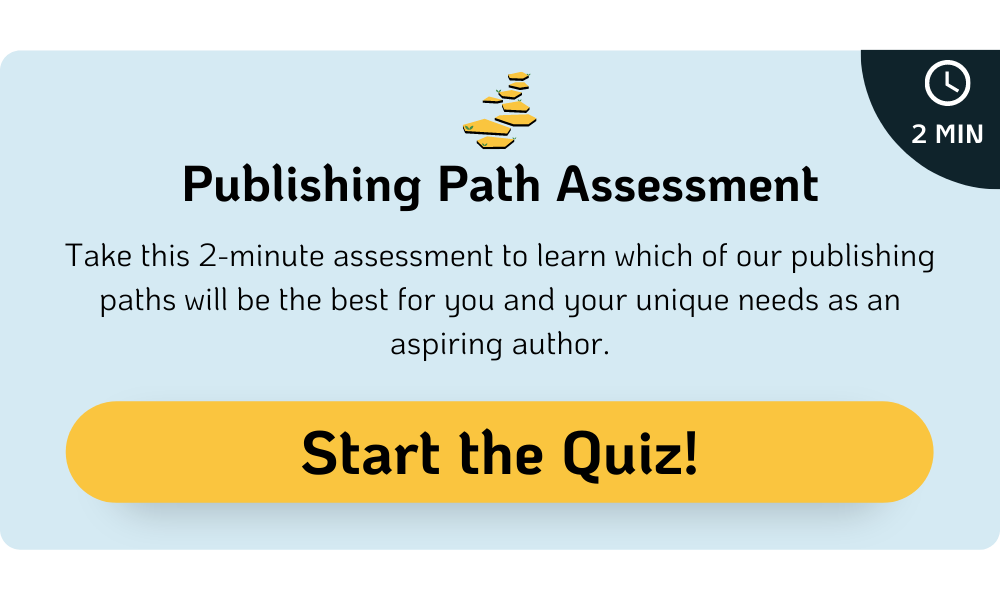Narrative writing makes up the bulk of what we know as storytelling.
But it’s not as easy as simply telling the story…it takes a lot more than that to write and even publish a book with a heavy focus on narrative writing.
If you want to…
- Learn more about narrative writing
- Learn why mastering narrative writing is the key to good storytelling
- Learn how to master narrative writing to improve your books and projects
Then you’re in the right place.
Here’s what you’ll learn about narrative writing:
- What is narrative writing
- Parts of narrative writing
- Narrative writing prompts
- How to use narrative writing
- Learn narrative writing from those experienced
- Read often to improve narrative writing
- Practice narrative writing regularly
- Ask for feedback to improve
- Watch movies and TV shows
- Invoke all 3 main story elements in 1 sentence
What is Narrative Writing?
Narrative writing is writing that has a story, characters, conflict, and other essential parts of a story. Narrative writing is often synonymous with a story.
And this differs greatly compared to other forms of writing, like in textbooks and certain nonfiction books.
However, if you’re writing a story of some kind, that is narrative writing, where a narrator is telling the story.
Parts of Narrative Writing
Narrative writing is made of specific parts. These parts of a book end up completing the whole, and are necessary for writing a good novel.
Character – The characters are essential. It’s extremely difficult to tell a story without them, as character development is one of the best parts in narrative writing. Think of your characters as the driving force of the narrative. Sometimes the character chosen is unreliable and therefore has holes throughout the story.
Conflict – This part of narrative writing is where the tension comes from. Conflict of any form, whether it’s between characters, between elements in your setting, or even in your plot, is essential for not only a good book, but for narrative writing.
Plot – This is the main point of your story. Where is it all going and what’s happening while we get there? This can often include any conflict, but is usually a bigger “main” portion of your story, and therefore the narrative.
Setting – The setting of a story is really what determines its genre as well as its learning curve. The learning curve refers to how much readers need to learn about the world, aka, how different it is from our own. The setting adds to this extensively because if your book is in a new world, more worldbuilding is necessary, which means it will bleed heavily into your narrative.
Theme – These are embedded into your story even if you’re not trying to. Narrative writing tells a story and with any stories, lessons are learned and these become the themes of your story. Whether you mean to or not, your own thoughts about the world and important values bleed into your work within the narrative writing.
Narrative Writing Arc – This is the story structure the narrative takes. This includes things like the inciting incident, key milestones like the first slap and second slap, the climax, the resolution, and even nuances like the character arc.
Narrative Writing Prompts by Genre
If you’re ready to get started on narrative writing, even before we’ve covered the important tips below, check out these writing prompts to inspire you.
Narrative Prompts #1 – Fantasy
- Set in its own world, write a story about a single plant, kept alive in a temple for thousands and thousands of years. Until one day, the guard on duty noticed it has dried and shrivelled completely, cutting off the society’s magic.
- Write a story about a woman who works the night shift at a local convenience store finding herself in the midst of what seems to be an otherworldly magic battle…in her shop.
- Create your own world and write a story about a modern civilization as if magic is and has always been the norm…until someone from the outside is discovered to be marvelling at its wonders, as if they’ve never seen it before.
Narrative Prompts #2 – Science Fiction
- Write a story focusing on a street sweep who works in the Dark, the place at the Earth’s surface where smog and pollution has taken over. Except when cleaning a particular street corner, they uncover an underground civilization who have perfected the technology to filter the air, leaving them with the purest in the world.
- Write a story about a doctor who was just replaced by a machine to diagnose, treat, and even operate on patients.
- In a futuristic society, the right to privacy has been abolished in order to keep people safe after a worldwide terrorist attack. Your main character, an engineer, has discovered how to override the “foolproof” surveillance system…what they find in the database changes everything.
Narrative Prompts #3 – Romance
- Your main character is a strawberry picker who has a run-in with the love interest, who is hiding in the fields, eating and picking strawberries as a means of survival because they’re on the run…and homeless.
- Write a story about two people who have been friends since childhood, though their families have promised them marriage to others despite them being in love.
- Write a story focusing on a semi-truck driver trying to outrun a jaded past as they meet someone who works in law enforcement while at a diner.
Narrative Prompts #4 – Dystopian
- More than a thousand years have passed since it happened—since one man disobeyed government orders to destroy his research into a nanobot technology after he discovered how to make them think.
- Write a story about an old man whose grandfather, when he was young, made the choice to unleash the secrets of cancer research—and its cure—to the world. Now population control has become an even bigger issue.
- Climate change is inevitable. Write a story about what happens when a small hole tears in the Earth’s atmosphere due to climate change, and what society must look like in order to heal it.
Narrative Prompts #5 – Mystery
- Your character receives a call that seems ordinary, from their doctor, about a recent test they took. When your character goes in for the appointment to discuss, their regular doctor is gone—missing…only to turn up dead days later.
- Eight astronauts went to space. Only seven returned. And none of them have any memory of an eighth person having ever been with them at all.
- All people in comas have been disappearing from hospitals all over the country for the past three months, with no leads. Your character is the sister of one of the missing coma patients.
Master Narrative Writing With These Strategies
By learning a few tips about how to write narrative really well, you’ll be well on your way from novice to expert.
#1 – Learn from the experienced
Most often, the best advice comes from those who are and have been in the thick of the thing you want to learn about.
They’ve got inside knowledge for the how-tos that are often far more effective that those simply teaching those methods.
Here are our favorite resources for learning about narrative writing:
- Our Youtube Channel
- Brandon Sanderson’s Sci-Fi/Fantasy lectures
- Jenna Moreci’s Youtube Channel
- Hannah Lee Kidder’s Youtube Channel
- Writer’s Digest
- Well-Storied
You can also take a look at this list of writing advice blogs to sift through.
#2 – Read a lot
You learn storytelling by reading or listening to stories. That’s how everyone learns how to tell a story.
While some are better than others by nature, reading more and more can open your eyes to new techniques and methods within the narrative writing. Understanding figurative language can help with describing a scene, and tone words can set the mood in most scenes.
Reading at least a book a month can help you improve your writing by simply immersing yourself in the words of someone else.
While some people might worry that their own writing will mimic the book they’re reading, this fear is often unfounded. Your natural voice will always be at the forefront unless you’re intentionally trying to sound like someone else.
Which we don’t recommend.
#3 – Practice regularly
Narrative writing is a skill that gets better the more you practice, much like most other skillsets.
As you write and craft stories with protagonists, great conflict, interesting setting, and more, you’ll learn how to make each of those elements better.
Recognizing where your strengths and weaknesses are will help you know what to focus on and improve…but that can only be done through experience, aka, practice.
Check out these writing tips and exercises to get better if you want some intentional practice.
#4 – Ask for Feedback
It’s very hard to be objective with your own work. We can’t often take a step back and recognize what we’re doing wrong and therefore, we can become stunted in our growth as writers.
Feedback is the key to fixing this. You won’t get better without being challenged. In many instances beta readers will help you with first drafts, but even before that it’s nice to have an editor or respected peer look over your work.
Other people see what you don’t. We all notice different things and this remains true for writing in particular.
Getting someone to offer feedback on your narrative writing is one of the best ways to improve and fix your weaknesses, becoming an overall better writer.
Here’s what some of your feedback can look like:

#5 – Watch movies and TV shows
Yes! We’re officially giving you permission to watch TV instead of work on writing, but for a very specific reason.
When you listen to writing advice, whether it’s from a friend or teacher or published author, you might hear them reference movies as examples.
The reason for this is because while some movies are adapted from books, all movies can teach you about storytelling and the structure of a good story overall.
And while movies are best for an overall view of storytelling for a book, TV shows are much better at teaching you how to write a good chapter, since each episode serves as a chapter of that story, the entire season as the equivalent of a novel.
Here are some questions to ask after you watch a movie or TV show:
- How did it start?
- What was different and intriguing about how events unfolded?
- Was there a twist? What foreshadowing did they use to make the twist surprising, but inevitable?
- What were the three biggest moments in the story?
- Did the ending connect to the beginning?
#6 – Invoke all three main elements in each sentence
These are character, plot/conflict, and setting.
Brandon Sanderson talks a ton about these three main elements of narrative writing in his lectures on Youtube.
The idea behind this is that these three main components make up the entirety of a story. When you can really dig deep into these three, you’ll become a better and better writer.
And not only that, but if you learn how to master invoking all three of these elements into each sentence, you’ve mastered the art of writing.
Now, this is very difficult. Not all authors do this. In fact, very, very few can do this and it’s not something you can do in every sentence.
However, when you’re thinking of writing each line with the goal of showing your readers more about the character, the world/setting, and the conflict all in one, you will be an incredible writer overall.

Here’s an example of what this means:
Not good: The woman wandered outside without any gear.
Better and invoking 3 elements: The woman was crazy enough to step outside, not a single scrap of gear on her body, flesh exposed in several places.
Why this is better: In the first example, we don’t really learn anything. All we see is a woman going outside without any gear. Now, yes, in this first example we get the feeling that having gear on is probably important, but we don’t see how much. In the second example, however, we get a sense of all three elements. First, we know that the character thinks such an act is crazy. Secondly, we learn that the setting must be dangerous and harsh enough to need gear (or be deemed crazy if you don’t have it). And lastly, this potentially adds to the plot or conflict by showing us that the outdoors is dangerous, or a place one can’t simply walk out to with skin exposed.
